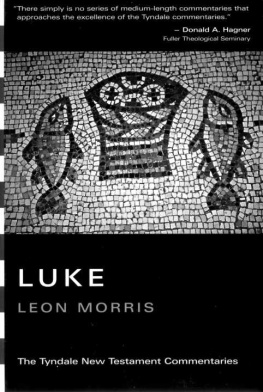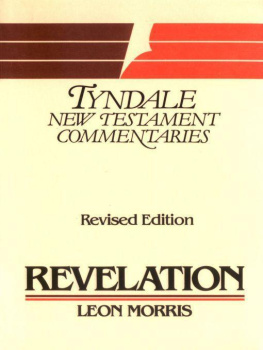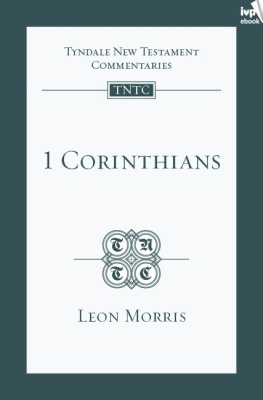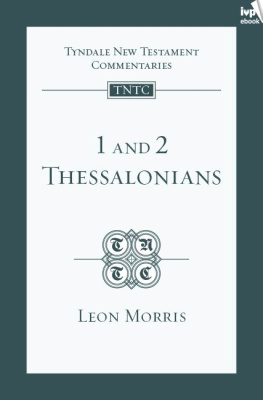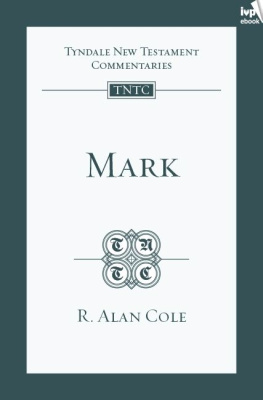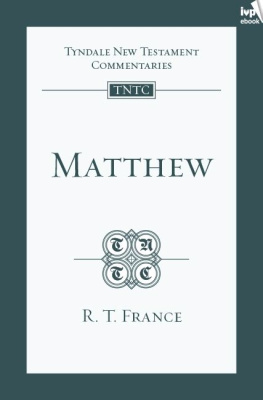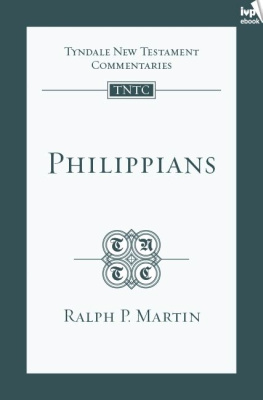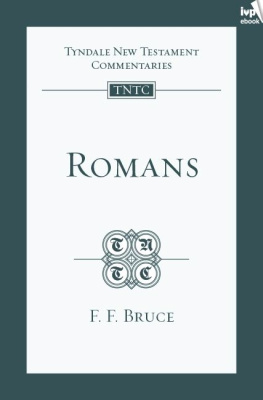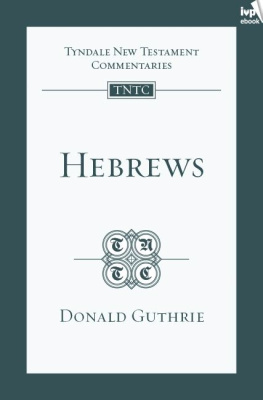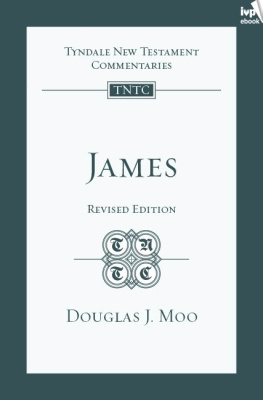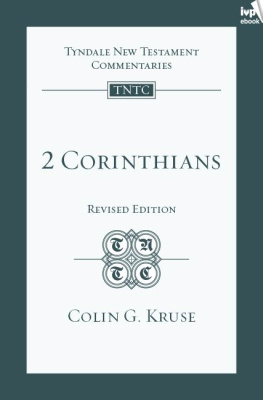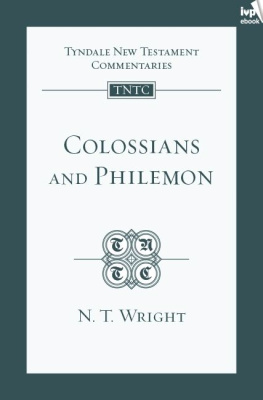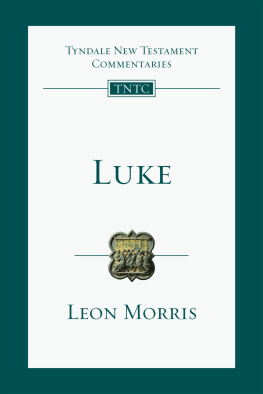THE TYNDALE
NEW TESTAMENT COMMENTARIES
LEON MORRIS
General Editor
THE GOSPEL
ACCORDING TO LUKE
An Introduction and Commentary
Leon Morris




GENERAL PREFACE
The original Tyndale Commentaries aimed at providing help for the general reader of the Bible. They concentrated on the meaning of the text without going into scholarly technicalities. They sought to avoid 'the extremes of being unduly technical or unhelpfully brief'. Most who have used the books agree that there has been a fair measure of success in reaching that aim.
Times, however, change. A series that has served so well for so long is perhaps not quite as relevant as it was when it was first launched. New knowledge has come to light. The discussion of critical questions has moved on. Bible-reading habits have changed. When the original series was commenced it could be presumed that most readers used the Authorized Version and one's comments were made accordingly, but this situation no longer obtains.
The decision to revise and up-date the whole series was not reached lightly, but in the end it was thought that this is what is required in the present situation. There are new needs, and they will be better served by new books or by a thorough up-dating of the old books. The aims of the original series remain. The new commentaries are neither minuscule nor unduly long. They are exegetical rather than homiletic. They do not discuss all the critical questions, but none is written without an awareness of the problems that engage the attention of New Testament scholars. Where it is felt that formal consideration should be given to such questions, they are discussed in the Introduction and sometimes in Additional Notes.
But the main thrust of these commentaries is not critical. These books are written to help the non-technical reader understand his Bible better. They do not presume a knowledge of Greek, and all Greek words discussed are transliterated; but the authors have the Greek text before them and their comments are made on the basis of what the originals say. The authors are free to choose their own modern translation, but are asked to bear in mind the variety of translations in current use.
The new series of Tyndale Commentaries goes forth, as the former series did, in the hope that God will graciously use these books to help the general reader to understand as fully and clearly as possible the meaning of the New Testament.
LEON MORRIS
CONTENTS
AUTHOR'S PREFACE
In revising this commentary I have gone through the text, updating it where that seemed advisable. Since the first edition discussion on Luke has not stood still; some fine books have appeared, notably the commentaries by Marshall and Fitzmyer. I have profited greatly from these works and am glad of the opportunity of making use of them in the preparation of this revision. There are no major alterations, but I have made many small changes in wording, some of which, I think, make the meaning clearer, while others embody additional information.
Perhaps I ought to make it clear that this commentary is intended simply to help non-technical readers understand what Luke has written. When it first appeared, some reviewers complained that I had not dealt sufficiently with form criticism, or with the changes Luke made as he handled his sources, or with questions of historicity. I should make it clear that this commentary was never intended to deal with such questions. Those who were kind enough to invite me to write it did, it is true, ask me to deal in the Introduction with some critical questions which had not been dealt with in the commentaries on the other Synoptic Gospels, notably the Synoptic Problem. The Introduction accordingly was perhaps a mite involved. But apart from that I was simply to bring out the meaning for non-technical readers and this I tried to do. Detailed discussions of form criticism, redaction criticism, historicity, and other delights were not in my brief. This is not a long book and it is not possible to handle everything. I have tried consistently to answer the question: 'What do these words mean?' I have been concerned with the meaning of what is before us, not how it came to be written as it is. I know that the questions I have left unanswered are important. But to deal with them would have meant a different kind of commentary (and a much longer one).
LEON MORRIS
CHIEF ABBREVIATIONS






























